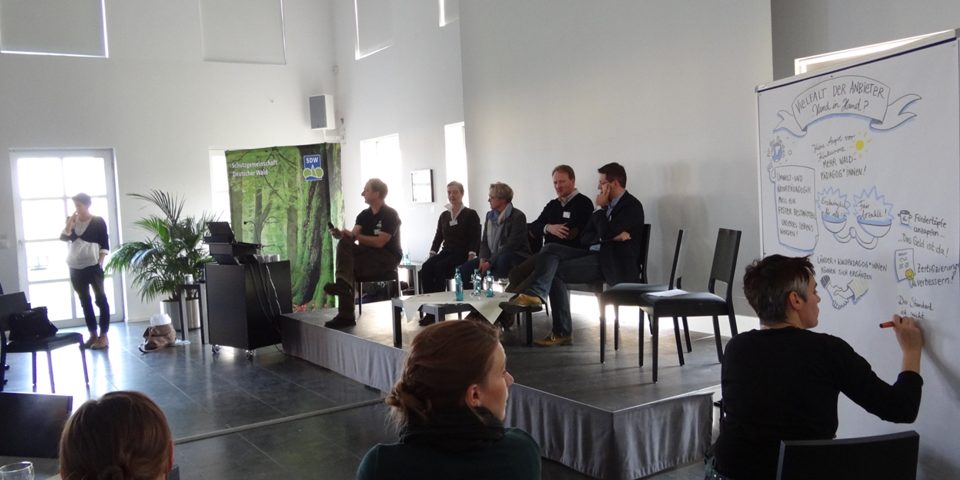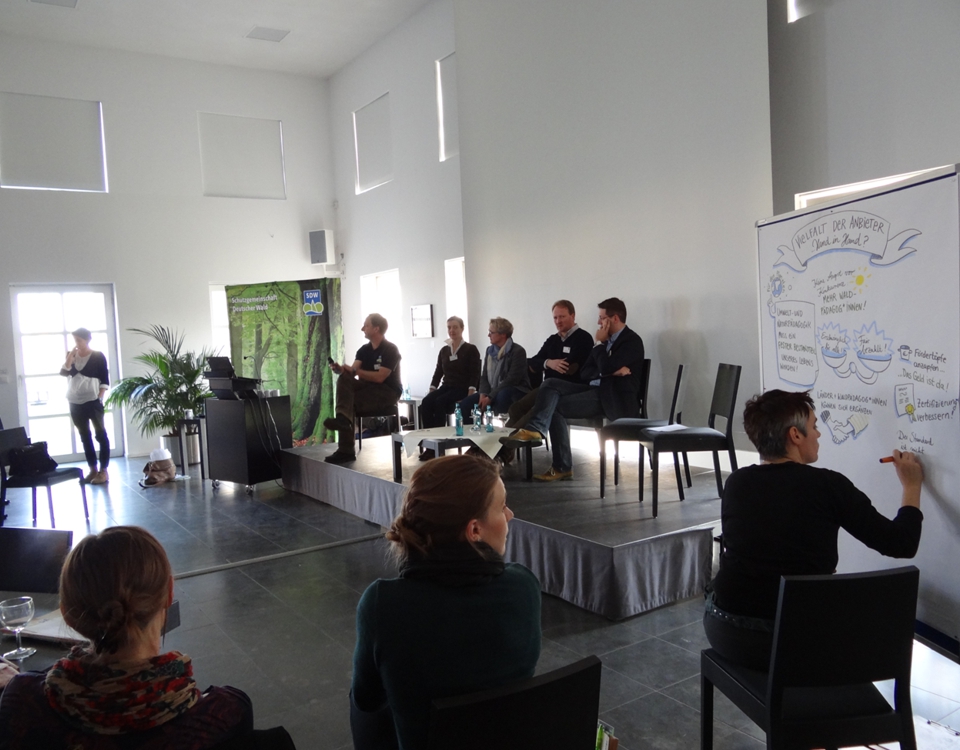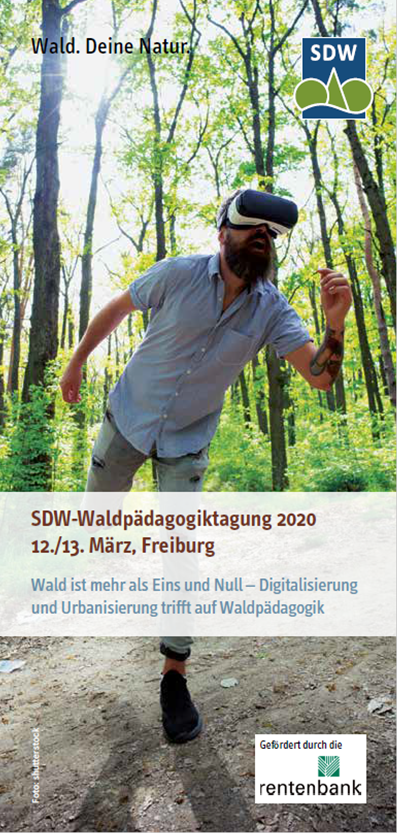SDW – Forest Pedagogic Conference

Forest pedagogy in Croatian forests
6. February 2020
21st March
International Day of Forest
4. March 2020SDW - Forest Pedagogic Conference
“Forest is more than one and zero - digitalization and urbanization meet forest education”
Autor: Ulrike Schuth, German Association for the Protection of Forests, Germany
T he year 2002 is marked as the beginning of the digital age. Since this year, human kind started to store more information on digital, than on analogue storage devices (Hilbert 2012). Today, digitalization affects all social levels. On one hand, it offers advantages such as reduced material intensity, intercultural communication opportunities through worldwide networking, or the recording and analysis of environmental problems (Sühlmann-Faul & Rammler 2018). This contrasts with negative effects as the growing energy consumption for the production and use of digital devices, the e-waste problem or a reduced direct social contact of the users (ebd.). Digitalization needs urgently to be steered towards socio-ecological goals to contribute to sustainable development. This also includes education.
Another mega trend is the increasing urbanization. In 2017, around 77 percent of Germany's population lived in cities (statista 2020); worldwide more than half of the world's population (UN 2008). Enable nature experiences in cities are becoming more and more important for creating environmental awareness. The german government promotes activities and research in programs such as the Weißbuch Stadtgrün (White Paper Urban Green).
Digitalization and urbanization seem to offer fewer and fewer opportunities to experience nature directly. This could reduce the development of environmental awareness and thus the commitment to protect forests.
SDW is facing up to these social challenges this year on the 10th Forest Education Conference in Freiburg from 12th to 13th of March. The focus of the 2-day network meeting for professionalizing environmental education actors is on how forest education can deal with these social tendencies. What kind of input can forest education offer to promote direct nature experiences and the awareness of the importance of forests under these conditions. The participants will receive first-hand background information from scientists, discuss in small groups and practice new forest pedagogic methods. A theatre-show-ensemble resumes the conference activities and results in the evening: creatively, with lots of verve and fun! The conference takes place in the centre of the old town in Freiburg and in the forest, nearby the WaldHaus Foundation, which is the cooperation partner of SDW this year. The conference is funded by the Landwirtschaftliche Rentenbank. For further information and registration click here: https://www.sdw.de/waldpaedagogik/tagungen/index.html
Hilbert, Martin: How much information is there in the “information society”?, 2012. http://www.martinhilbert.net/Hilbert_Significance_pre-publish.pdf [31.01.2020]
The Shift Project: Lean ICT – Towards digital sobriety. Report of the working group directed by Hugues Ferreboeuf for the think tank the shift project, March 2019. https://theshiftproject.org/wp-content/uploads/2019/03/Lean-ICT-Report_The-Shift-Project_2019.pdf [31.01.2020]
Sühlmann-Faul, Felix & Rammler, Stephan: Der blinde Fleck der Digitalisierung. Wie sich Nachhaltigkeit und digitale Transformation in Einklang bringen lassen. Oekom: München, 2018.
UN: United Nations Expert Group Meeting on Population Distribution, Urbanization, Internal Migration and Development, New York, 2008 https://www.un.org/en/development/desa/population/publications/pdf/urbanization/population-distribution.pdf [31.01.2020]
Statista, 2020 https://de.statista.com/statistik/daten/studie/662560/umfrage/urbanisierung-in-deutschland/ [31.01.2020]



